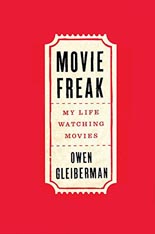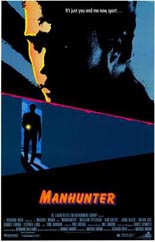
 For whatever reason, our nation’s finest film critics have been feeling very nostalgic of late, writing books that look back on their entire careers. In 2014, Kenneth Turan gave us Not to Be Missed: Fifty-Four Favorites from a Lifetime of Film; Richard Schickel followed in 2015 with Keepers: The Greatest Films — and Personal Favorites — of a Moviegoing Lifetime; and now 2016 brings us Owen Gleiberman’s Movie Freak: My Life Watching Movies.
For whatever reason, our nation’s finest film critics have been feeling very nostalgic of late, writing books that look back on their entire careers. In 2014, Kenneth Turan gave us Not to Be Missed: Fifty-Four Favorites from a Lifetime of Film; Richard Schickel followed in 2015 with Keepers: The Greatest Films — and Personal Favorites — of a Moviegoing Lifetime; and now 2016 brings us Owen Gleiberman’s Movie Freak: My Life Watching Movies.
I don’t mean to suggest Gleiberman has latched himself onto a bandwagon like an opportunist caboose — far from it. In fact, he has surpassed those efforts of his better-known, longer-at-it peers, both of whose works I loved reading. By infusing their decades-encompassing critical acumen with the cinema-as-a-drug zeal of comedian Patton Oswalt’s Silver Screen Fiend confessional from last year, Gleiberman has given us this year’s best biography you didn’t know you wanted, auto- or otherwise.
Besides, can you imagine Schickel or Turan having the guts to go into detail about their porno turn-ons? (And would you want them to?)
Ask someone — anyone — at a party, “How did you get to be a [insert job title here]?” The answer will be boring — incredibly, mind-numbingly boring, so much that you wish you had an extra gin and tonic to minimize the suffering. One gets the sense Gleiberman knows this, too, and thus, has taken great pains to make his story compelling. Of course, it helps if you love movies — really, really, really love movies.
I do. Most of us know Gleiberman’s name from his 24-year stint at Entertainment Weekly, starting with its debut issue. I recall that very edition, feeling like I had found a kindred spirit because of his straight-A review of Men Don’t Leave, a quirky dramedy starring Jessica Lange that I adored, yet the rest of America ignored. I have been addicted to Gleiberman’s writing ever since. In Movie Freak, he tells us how he landed that “dream job,” by way of The Boston Phoenix and a good word from Pauline Kael, and how he managed to nearly fuck it up so often, for so long.
It’s a story of an affectionless father, brazen naiveté, superficial relationships with the opposite sex (particularly notable: a six-month cocaine-and-S&M bender) and even more superficial relationships with his fellow film critics. Cursed with a potent mix of insecurity and jealousy, they can be raging bullies, as his dealings with Kael and David Edelstein attest. His description of Rex Reed as “Blanche DuBois-with-a-hemorrhoid” is as dead-on as his perception of Roger Ebert as “far too perceptive a man to give a tongue kiss to as many mediocre movies as he did.”
It’s also a tale of clubbing with Oliver Stone; drinking with Russell Crowe; watching Sid & Nancy director Alex Cox eat a booger; hitting on Gillian Flynn, pre-Gone Girl; and pissing off Denis Leary and Robert Duvall.
 As gossipy as all that sounds, Movie Freak forgets not the cinema. In reconnecting with his past, Gleiberman revisits and reconsiders his favorites since the 1970s; most critics would err on the side of snobbery rather than champion something as genre-soaked as Michael Mann’s Manhunter or as comic-violent as Stone’s Natural Born Killers, yet the author is as ballsy to go out on that professional limb as he is about rendering his personal life transparent.
As gossipy as all that sounds, Movie Freak forgets not the cinema. In reconnecting with his past, Gleiberman revisits and reconsiders his favorites since the 1970s; most critics would err on the side of snobbery rather than champion something as genre-soaked as Michael Mann’s Manhunter or as comic-violent as Stone’s Natural Born Killers, yet the author is as ballsy to go out on that professional limb as he is about rendering his personal life transparent.
Reading these revitalized quasi-reviews is a kick. Whether one agrees with his opinions or not, these pages electrify. His passion for these and other films makes you want watch them again or, if you’ve never seen them, elevates your curiosity into urgency. That’s the joy of absorbing solid film criticism … so it’s nice to have the rarity of being able to pay him back. Allow me to explain: Regarding a passage on the increasing surplus of highly specialized music documentaries at film festivals, he writes, “I fully expect to see entire films devoted to the life and times of Clarence Clemons, the poetic genius of Bernie Taupin, and the sonic miracle of the Moog synthesizer.” Regarding the latter, Mr. Gleiberman, allow me to point you to 2004’s Moog! (Its double-disc soundtrack album is awesome, natch.) You are welcome.
If there are negatives to Gleiberman tackling the long form, they are minor. Like millennials, he literally overuses “literally.” More than once, he uses “kiddie-corner” when he means “kitty-corner.” And, speaking of “kiddie,” he misidentifies the runaway-robot comedy Short Circuit as a Paramount Pictures release, whereas Tri-Star handled that one; it’s an important distinction given that the anecdote in question is about inadvertently making studio enemies by bailing on the flick’s junket before its conclusion.
I can relate. Less about junkets, however, and more about heading for the exit when a movie proves insufferable. As with our shared fondness for Men Don’t Leave, Gleiberman joins me in going against the grain — and pretty much all of civilization — in openly detesting Peter Jackson’s needlessly bloated Lord of the Rings time-wanks. Fight on, beleaguered white man! —Rod Lott
